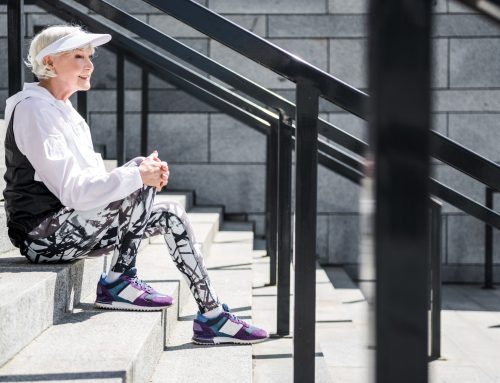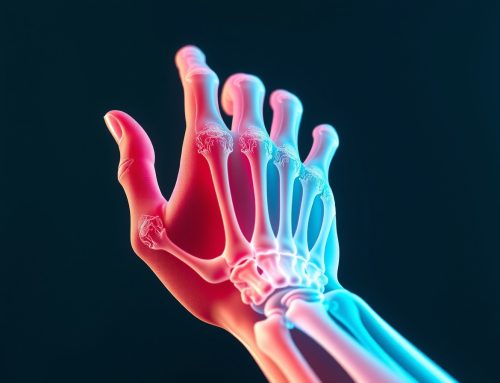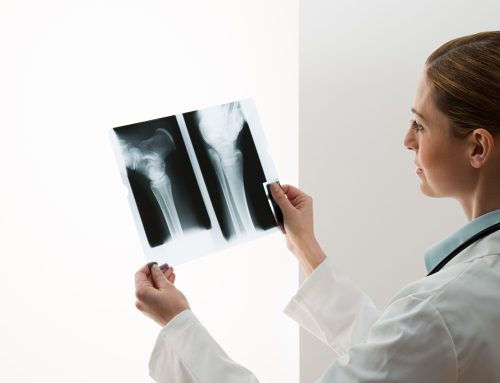
What you eat contributes to a lot more than just weight gain. You can adjust your diet to promote a better brain, better digestion, or even - better bones. Osteoporosis affects millions of Canadians who have to tailor their lifestyle to include more calcium rich food options. Because of the weather, we also depend on vitamin D food sources during the winter when you’re not soaking up the sun.
Without the right balance of movement and nutrition, the risk of developing osteoporosis increases. Your bone cells start breaking down more than they rebuild as you age. A significant factor that plays a role is genetics, but even then, you’re not entirely helpless. Bones are living tissue that can be supported through the proper diet that aids in the prevention of further bone loss.
Best Nutrients for Osteoporosis Patients
What you feed your body comes down to a lot more than calories, carbs, or fats. The vitamins and minerals in certain foods or beverages work together to give your system the ultimate defence against bone loss. Calcium delivery boosts when combining calcium rich food with vitamin D food sources. This happens because of the way they react together within your body. Read on to learn more about each bone-building nutrient and what food you can find them in.
Calcium
Calcium is an essential component of your bone tissue, so it makes sense that you’d need to consume more of it to build better bones. Adults between 19-50 should have around 1000 mg (milligrams) of calcium per day, and anyone over 50 is recommended to have 1200 mg per day. But if you’re vegan, are you limited in your options? Don’t worry; we have a list of dairy and dairy-free options for calcium rich food sources.
Calcium Rich Food Sources
- One serving of yogurt, cheese, or milk typically contains 300mg of calcium. Vegans can indulge in soy, almond, or oat milk, which typically contains just as much calcium.
- Dark green vegetables, such as kale, collard greens, turnip greens and cabbage, can provide 100-250 mg of calcium per 1 cup of cooked vegetables. Just be wary of having too much spinach if you’ve been diagnosed with osteoporosis. It contains oxalates, which disrupt the calcium absorption process.
- Tofu can contain 250 mg of calcium per ½ cup, but you’ll need to check the label to confirm. Every brand of tofu is made differently.
- Fruits such as raisins, prunes, figs, and dried apricots contain calcium that can help strengthen bones.
Vitamin D
Vitamin D is the powerhouse that helps your body absorb calcium. Unfortunately for Canadians, we have long winters with minimal sun exposure. That makes it tough to soak up enough ultraviolet rays to get the true benefits of vitamin D. However, you can turn to food or supplements to help your body get what it needs.
Vitamin D Food Sources
- Fatty fish such as salmon, sardines, canned tuna or swordfish.
- Vitamin D-fortified beverages, such as dairy milk, plant-based milk, and even some juices. Just check the label for at least 100 IU (international units) to get the benefits.
- Egg yolks
- Beef Liver
- Pork
- Cheese
Protein
Protein helps maintain healthy tissue, including the muscles, which helps decrease your risk for hip fractures. It also makes up nearly 50% of your bone volume and one-third of its mass. Almost as important as calcium, including protein food sources in your diet should be a priority if you’ve been diagnosed with or are at risk of osteoporosis. You should aim to have between 0.8 and 2 grams of protein per kilogram of your body weight per day.
Protein Food Sources
- Meat
- Poultry
- Fish
- Eggs
- Dairy products
- Almond butter
- Sunflower seeds
- Beans
- Nuts
Vitamin C
Studies have revealed that vitamin C is beneficial for men and women over the age of 60 for its mineral bone density benefits. Ascorbic acid, another name for this vitamin, aids bone health by decreasing inflammation, repairing glutathione, and promoting collagen production. Since the body doesn’t naturally produce it, you’ll need to consume vitamin C through foods and supplements.
Vitamin C Food Sources
- Fresh citrus fruits, such as oranges, kiwi, lemons or grapefruit
- Tomatoes
- Bell peppers
- Vegetables such as Brussel sprouts, broccoli, cabbage and cauliflower
- White potatoes
- Thyme and parsley
Magnesium
Magnesium is responsible for over 600 chemical reactions inside your body, including increased bone density. Most people don’t get enough of it in their diets, especially if they eat many processed foods where the mineral is removed in the process. Here are a few ways you can get your proper magnesium intake to benefit your bone health, heart, blood pressure, and energy production.
Magnesium Food Sources
- Dark green vegetables
- Nuts, such as almonds, cashews, brazil nuts, etc.,
- Legumes
- Rye, wheat, or whole-grain cereals
- Brown rice
- Corn
- Avocados
- Mushrooms
Vitamin K
Vitamin K1 and K2 are essential nutrients for your body that can fight against deterioration and help deposit calcium into your bones and teeth. Studies have proven that women with lower vitamin K intake had a higher risk of hip fracture, whereas those with more than 254 mg per day had a reduced possibility of a break. Vitamin K2 has a vital role in keeping calcium away from your blood vessels, kidneys, or brain and making its way to your bones.
Vitamin K Food Sources
- Soybeans
- Types of cheese (blue cheese, swiss, Jarlsberg)
- Greens such as kale, spinach, swiss chard, collards, parsley, and broccoli
- Egg yolks
- Meat
- Liver
Zinc
Zinc plays a significant role in collagen formation, which helps our bone-building cells continue to rebuild during the breakdown process. Without enough zinc in your diet for osteoporosis, you’ll struggle with bone loss, your immune system will weaken, you’ll have a lower reproductive capacity, and your brain-sensory functions like taste and smell won’t operate as efficiently.
Zinc Food Sources
- Meat, especially red meat such as beef, lamb, and pork
- Shellfish like oysters, shrimp, and mussels
- Legumes like chickpeas, beans, and lentils
- Seeds such as hemp, pumpkin, sesame and squash
- Nuts like pine nuts, peanuts, cashews and almonds
- Dairy products like cheese and milk
- Eggs
Food plays an essential role in the way our body functions. If you’ve been diagnosed with osteoporosis, adjusting your diet for osteoporosis to ensure you get the proper nutrients is crucial to prevent accelerated bone loss. But it’s not the only thing you can do to boost bone density. Marodyne LiV offers a scientific NASA-inspired device that stimulates your bones and muscles. The best part - you can use it at home for just 10 minutes a day. Learn more about how the Marodyne LiV device can help you naturally improve your health.
Do you create your meal plans based on the nutrients you need or your cravings for the week? What’s your favourite source of calcium? Share your thoughts with our readers below who want to build better bone health.



